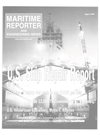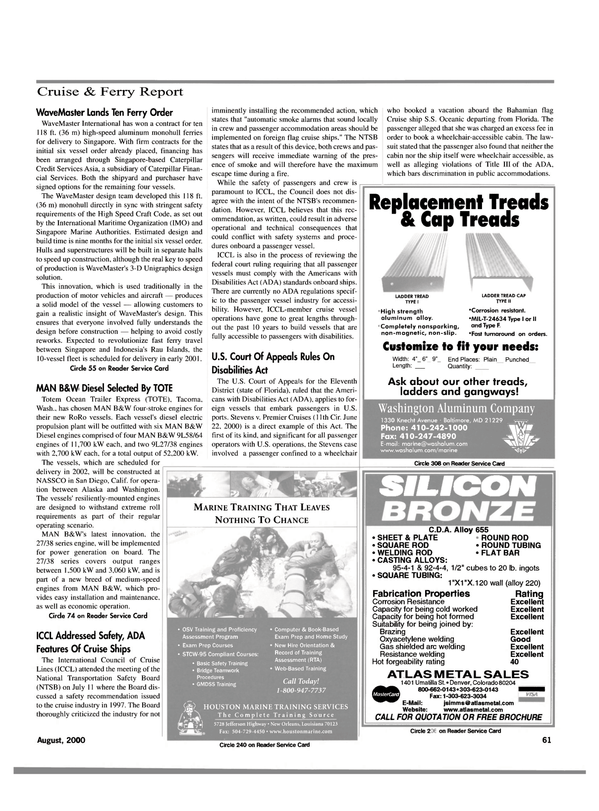
ICCL Addressed Safety, ADA Features Of Cruise Ships
The International Council of Cruise Lines (ICCL) attended the meeting of the National Transportation Safety Board (NTSB) on July 11 where the Board discussed a safety recommendation issued to the cruise industry in 1997. The Board thoroughly criticized the industry for not imminently installing the recommended action, which states that "automatic smoke alarms that sound locally in crew and passenger accommodation areas should be implemented on foreign flag cruise ships." The NTSB states that as a result of this device, both crews and passengers will receive immediate warning of the presence of smoke and will therefore have the maximum escape time during a fire.
While the safety of passengers and crew is paramount to ICCL, the Council does not disagree with the intent of the NTSB's recommendation.
However, ICCL believes that this recommendation, as written, could result in adverse operational and technical consequences that could conflict with safety systems and procedures onboard a passenger vessel.
ICCL is also in the process of reviewing the federal court ruling requiring that all passenger vessels must comply with the Americans with Disabilities Act (ADA) standards onboard ships.
There are currently no ADA regulations specific to the passenger vessel industry for accessibility.
However, ICCL-member cruise vessel operations have gone to great lengths throughout the past 10 years to build vessels that are fully accessible to passengers with disabilities.
Read ICCL Addressed Safety, ADA Features Of Cruise Ships in Pdf, Flash or Html5 edition of August 2000 Maritime Reporter
Other stories from August 2000 issue
Content
- Behemoth in the offing? page: 8
- Net gains for yards page: 10
- Double act for the Baltic page: 10
- Propeller & Shafting Symposium Set For September page: 13
- ShipDesk Strives To Carve A Niche page: 15
- Atlantis Interactive Inspects With ShipCheck page: 17
- EDG Elects New Marine Engineering Head page: 19
- Kvichak's Pilot Boat Comes Back From Flunking Test page: 21
- Repair Market Gains Muscle page: 25
- 'Waterfront Academy' To Teach Students About Shipbuilding page: 25
- Oceaneering Helps Historic Sub Recovery page: 29
- U.S. Vessel Loan Guarantees: Myths And Realities page: 31
- OpSail 2000: Parade Of Tall Ships Graces New York's Waters page: 34
- Construction Commences On Milestone Cruise Vessel page: 37
- Bollinger Delivers 254 ft. Multi-Service Vessel page: 37
- Shipbuilding in a Box? page: 39
- USCG "Paint Floats" Make Arduous Task Easier, More Environmentally Sound page: 42
- Passenger Vessels With Pedigrees page: 47
- "Classic Italian" From Finland? page: 48
- Costa Atlantica First To Earn RINA's Green Star page: 49
- Incat Launches Its Own New "Milenium" page: 59
- Mayflower Lines Is Newest U.S.-Flagged Operation page: 59
- WaveMaster Lands Ten Ferry Order page: 61
- MAN B&W Diesel Selected By TOTE page: 61
- ICCL Addressed Safety, ADA Features Of Cruise Ships page: 61
- U.S. Court Of Appeals Rules On Disabilities Act page: 61
- Welcome The Little Black Box page: 64
- Ruggedized Panasonic Notebooks Fit For Maritime Use page: 66
- Legal Matters Top Ship Repair And Conversion Agenda page: 67
- Astano Repairs Largest In Five Years page: 67


